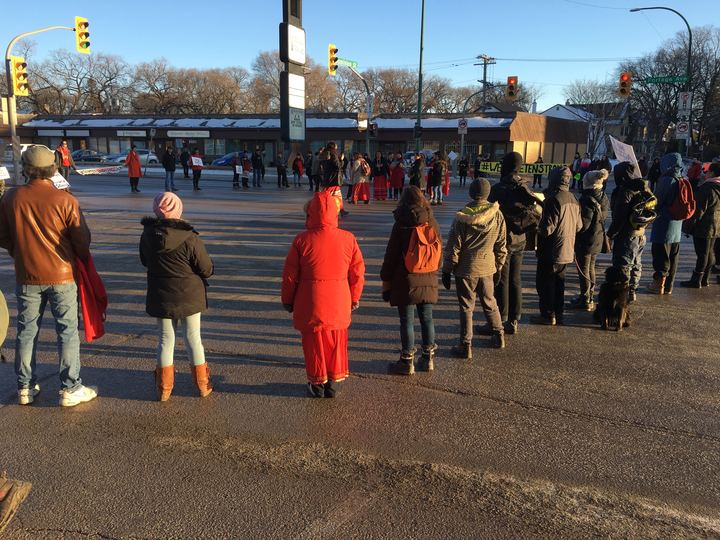The arrest of demonstrators at a blockade near Belleville, Ont., along with other blockades and protests across the country, are garnering strong reaction.

Ontario Provincial Police (OPP) arrested protesters at the Belleville blockade after a deadline passed for them to leave the site.
The arrests come after Prime Minister Justin Trudeau said Friday that court injunctions need to be enforced.
Hours later, a protest took place on Portage Avenue in Winnipeg, showing support for Tyendinaga and Wet’suwet’en Nation. The protest, which happened in front of RCMP’s D Division headquarters, backed up traffic for hours and snarled streets in the West End.
Niigaan Sinclair, an associate professor of native studies at the University of Manitoba, said Canada needs to recognize Indigenous rights.

Get daily National news
“People are simply asking for Indigenous peoples to be treated like human beings. That’s all we’re asking for,” Sinclair said.
“What this tells you is that Canada is interested in might and not Indigenous rights.”
The Manitoba Metis Federation recently released a statement saying they do not support the blockades and the protests at this time. MMF president David Chartrand says the issue needs to be addressed by the Wet’suwet’en first, not nationwide.
“The number one issue that Canadians, Indigenous people, Metis nation, that all of us have got to look at is this is a matter that belongs back in the Wet’suwet’en territory,” Chartrand told Global News Monday.
“They have to go back and understand who then speaks on behalf of the people of the Wet’suwet’en territory. Who does? Is it the Indian council of elected people or is it the hereditary chiefs?” Chartrand continued.
“And is it the majority or the hereditary chiefs? Or a minority? Can one hereditary chief lock out the entire rest of the hereditary chiefs that are one side?
“We don’t know that and they need to resolve that.”












Comments
Want to discuss? Please read our Commenting Policy first.